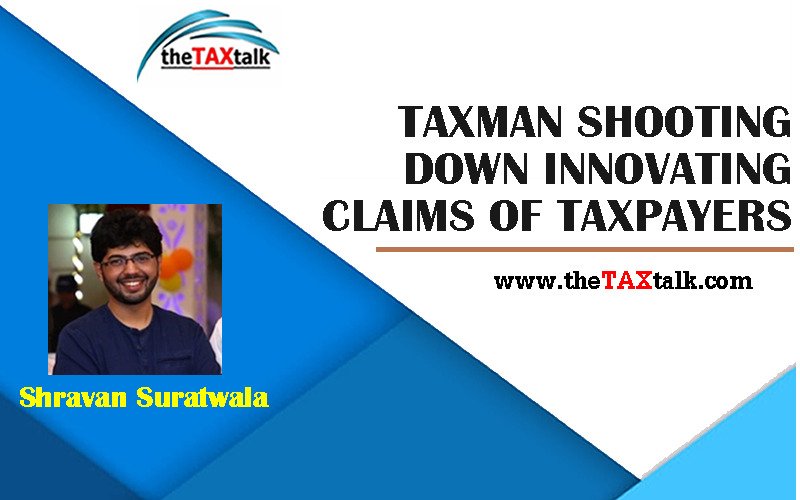![]()
TAXMAN SHOOTING DOWN INNOVATING CLAIMS OF TAXPAYERS
Author
Shravan Suratwala
Chartered Accountant, B.Com., Dip. IFRS (ACCA UK)
Brief profile:Shravan has six plus years of post-qualification professional experience in advisory, litigation and compliance areas of Corporate and International taxation. He has also worked three plus years in the field of Internal and Process Audit during his internship. Shravan has worked with multinational and reputed firms like Deloitte, SKP and Kirtane&Pandit across levels and also was a part of Direct Tax Committee of The Institute of Chartered Accountants of India.
Budget season of 2021 and 2022 have been really interesting in terms of clarifying certain litigious issues between taxman and taxpayer. Three such litigious issues which instantly come to mind are clarifications/amendments in relation to tax position on delayed contribution of employees’ contribution to various funds, claim of Education cess and applicability of lower tax rate (especially for dividend income) citing MFN clause invoking tax treaties with Columbia, Slovenia and Lithuania.
For all the three issues, tax payers had taken numerous technical arguments to claim tax benefits which were also upheld by various courts. However, the taxman has intervened and clarified its position by making appropriate changes in law, stating that this was not the correction interpretation and intention of the legislature. The summary of these issues is as under:
Taxpayers contention upheld by Courts |
Taxman’s interpretation |
A. Delayed contribution of employees’ contribution of various funds |
|
Employees’ and Employer’s contribution should be considered at par and therefore, timeline for making payment for Employees’ contribution should be before date of filing of tax return (akin to section 43B items) |
Employees’ and employer’s contribution are covered by distinct provisions. Employees’ contribution towards welfare funds is a mechanism to ensure the compliance by the employers of the labour welfare laws. Therefore, the same needs to be deposited before the due date under respective labour laws.This amendment was prospective in nature. |
B. Claim of Education Cess |
|
The taxpayers considered the Education Cess as tax deductible expenditure on the ground that it is not in the nature of ‘income-tax’. Such claim was on the basis of the language in 1967 circular and such interpretation was upheld by High Courts. |
The taxman has clarified that Education cess is nothing but an additional surcharge and has always been in the nature of income tax. The education cess was introduced in 2004 and therefore, reliance on 1967 circular is misplaced.This is a clarification is inserted with effect from 2004. |
C. Applicability of lower tax rate (especially for dividend income) citing MFN clause invoking tax treaties with Columbia, Slovenia and Lithuania |
|
From 1 April 2020, dividend is taxable in the hands of the recipient of income. Now, the corporate multinationals could take the benefit of the tax treaties for dividend taxation. Most of the tax treaties provide for a lower rate of taxation for dividend (5%-15%) when compared with the domestic tax rates. Taking this a step further, certain tax treaties where the ‘Most Favoured Nation’ (MFN) clause exists in the Protocol to tax treaty (France, Netherlands, Switzerland, etc.), the rate for taxation may further go down to 5% using tax treaties of Columbia, Slovenia and Lithuania, irrespective of the tax rate mentioned in the Dividend Article of that respective treaty.The issue here was that Slovenia, Columbia and Lithuania were not members of OECD at the time India signed tax treaties with them. Therefore, considering applicability of MFN clause in Protocol to tax treaty (France, Netherlands, Switzerland, etc.) was litigious. Various high courts had ruled in the favour of the tax payers. |
The taxman has clarified that the taxpayers from countries where MFN clause exist (France, Netherlands, Swizterland, etc.) cannot apply the benefits available under tax treaties entered into by India with Columbia, Slovenia making use of the most favoured nation clause.It was further clarified that Lituania and Columbia became members of OECD after signing the tax treaty with India and therefore these treaties could not be applied to all countries.However, existing court rulings already pronounced in favor of the taxpayer would not be affected. |


